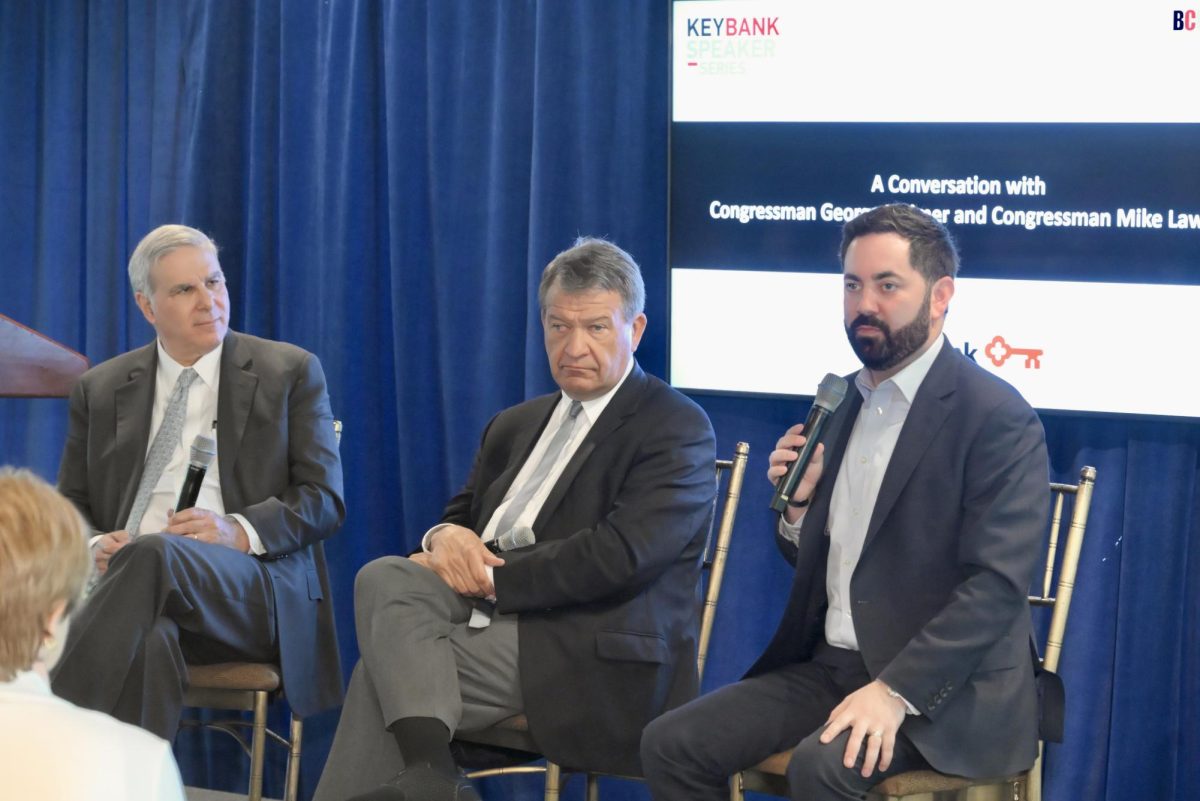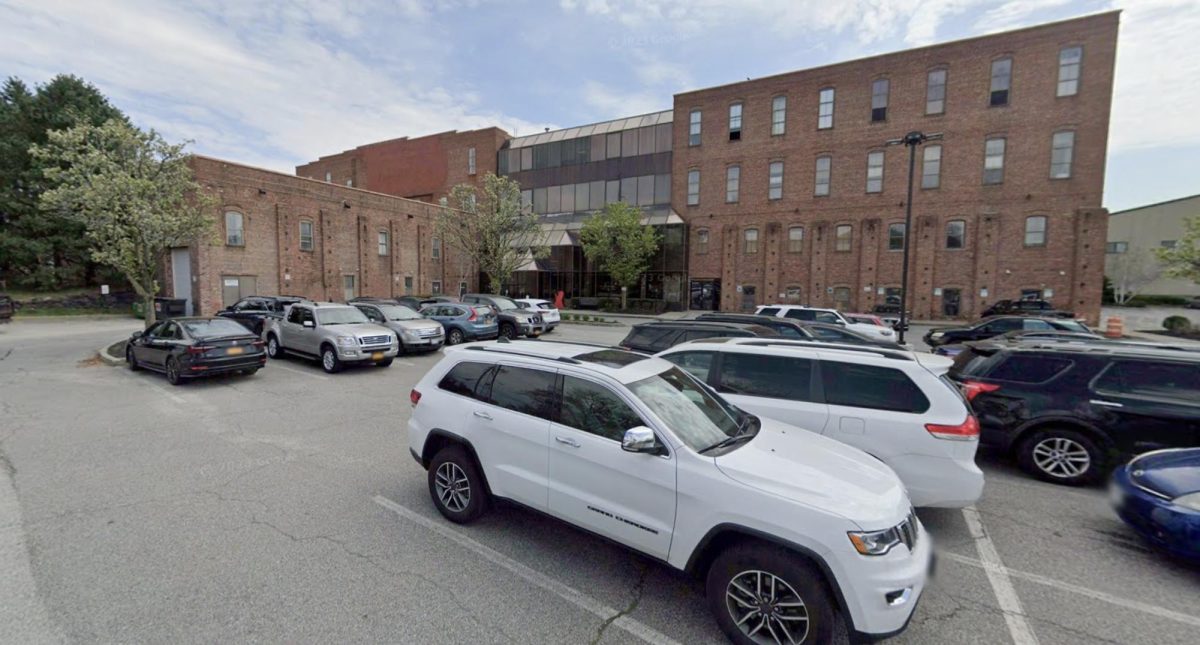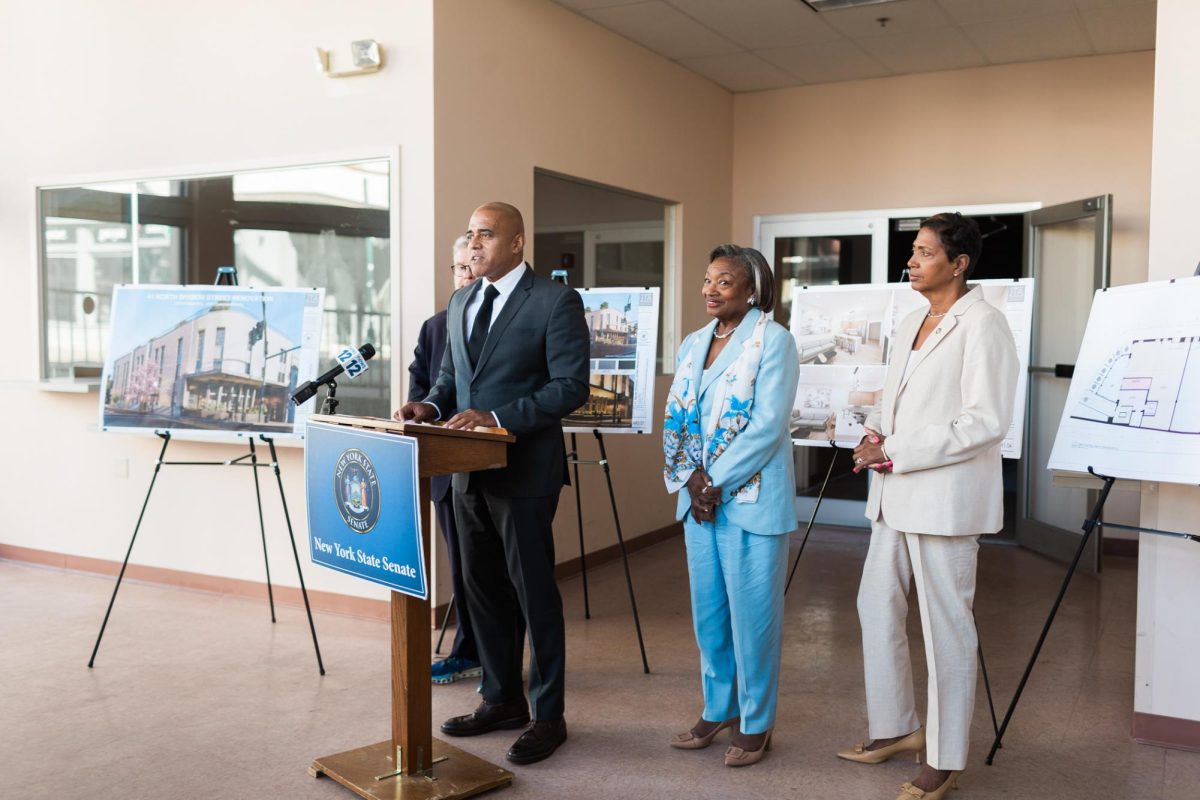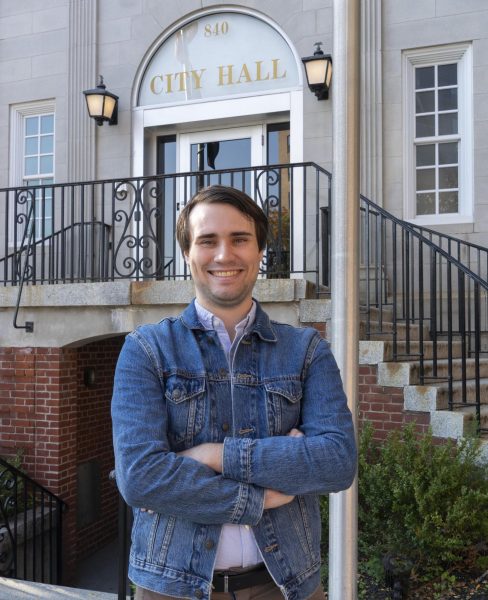Former Westchester County Executive George Latimer paid a visit recently to Tappan Hill Mansion in Tarrytown, but this time as a congressman, for a conversation over breakfast with fellow U.S. Representative Mike Lawler.

The May 12 event was part of the Business Council of Westchester’s KeyBank Speaker Series and was moderated by the council’s vice president John Ravitz, with no questions from the floor.
Latimer, a Democrat representing Congressional District 16 (down county and the Bronx), and Lawler, a Republican representing the 17th Congressional District (which includes the City of Peekskill), discussed key issues affecting the business community, federal budget cuts, tariffs, Medicaid, and the energy landscape.
Lawler addressed consternation over certain controversies since President Donald Trump took office in January, including the president’s role in negotiating legislation. Lawler cited the bill released by the House Energy and Commerce Committee on May 11 that left out some of the deeper cuts considered for Medicaid.
“A group of about 20 of us have been very forcefully pushing back against the more extreme elements of our conference with respect to proposed cuts,” Lawler said. “Anybody who’s ever been in government or around government understands this is a process. And as things are released, you continue to work through, you negotiate, you push back.”
While some controversial cuts were omitted, the proposed bill includes new work requirements expected to result in lost coverage for a significant number of Medicaid recipients; eligibility verification checks every six months rather than annually, and a provision to prevent Medicaid use by those unable to verify their citizenship, nationality, or immigration status.
The GOP’s so-called “big, beautiful bill,” which proposes deep cuts to Medicaid and to use of the SNAP card (used like food stamps), is still undergoing significant changes ahead of a potential floor vote this week.
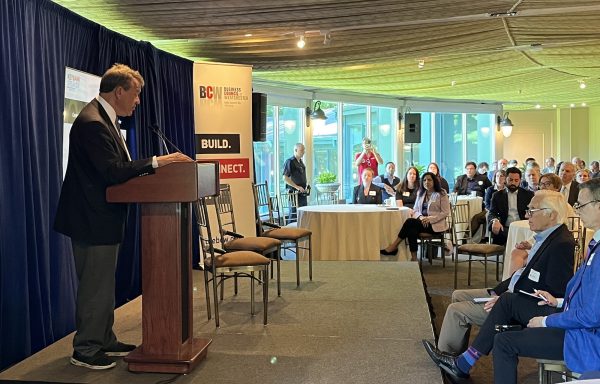
At a heated town hall earlier this month, Lawler said America’s $36 trillion in debt requires tough decisions and necessitates budget cuts to avoid further deficits and debt. He added that Trump has been his biggest ally on state and local tax (SALT), for which Lawler has been advocating higher limits on SALT deductions.
(Lawler has since found himself at odds with Trump, who has called on Lawler to back off his demand for a higher limit on SALT deductions. Lawler and four other Republican members of the “SALT Caucus” have held out on Trump’s “big, beautiful” bill out of a strong conviction that the deduction increase from $10K to $30K is not high enough.)
Latimer noted at the panel that he was only four months into his tenure in Washington, but that he has observed an inability or unwillingness from those in government to look long term where the country is as a nation. He criticized the administration’s attitude towards its allies as being “my way or the highway” and “slap them first and then we’ll discuss it later.”
“I think that’s a foolish way to go in the long term,” Latimer said. “In the short term, you’re flexing a political muscle, but you create animosities and resentments that are not helpful on the issue of tariffs. I was taught that tariffs are not a political tool. They’re an economic tool and they’re used sparingly.”
On the topic of energy needs and future growth, Latimer said a more balanced process on energy was the way to go.
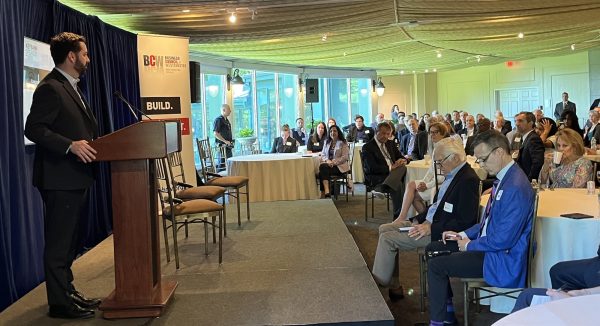
“The administration has shown opening hostility at some level to renewable energies,” Latimer said. “Now only a fool would say we need to go all renewable and ditch fossil fuels… But you can’t say we’re going to disinvest in the efforts to make renewable energies come. It has to be comparable in both areas…. Not just drill, baby, drill.”
Lawler criticized the loss of manufacturing in the U.S., saying several cities in upstate New York have been decimated by industry and jobs going overseas. He pointed the finger at “idiotic” policies in Albany for rising utility bills and criticized the Climate Leadership and Community Protection Act for its shutting down Indian Point.
“Shutting down Indian Point without a plan to replace that energy was foolish,” Lawler said. “By the way, the grid is dirtier today than it was when Indian Point was operating. Why is that? Because we didn’t actually have a plan to replace the energy.”
In Latimer’s closing remarks, he painted a picture of his new role as a congressman, saying the amount of phone calls he gets exceeds anything he saw as a county or state legislator. In referring to a recent climate protest against him, Latimer said that hoped he has learned from his public office experience not to overreact when there is a pressure to react just to satisfy a situation.
“When you have that kind of a moment, you have to remind yourself, people have a right to free speech,” Latimer said. “They have a right to free assembly. They have a right to look you in the eye and disagree with you. You gotta look at them and not let it get to you so that you can get past the moment and look at what the longer term issues are, the tough decisions.”
Lawler said that he was able to have six bills signed into law in a divided government in part due to meeting with former president Joe Biden when he came to Westchester County. He urged his Democratic colleagues to meet with Trump to tell him their concerns and needs.
“The man is not ideological. He is transactional,” Lawler said. “I mean, he’s very much a businessman. He very much will engage in negotiation. That’s just a reality. And so if you want to get things done for your community, if you want to get things done for your perspective, you have to engage.”


